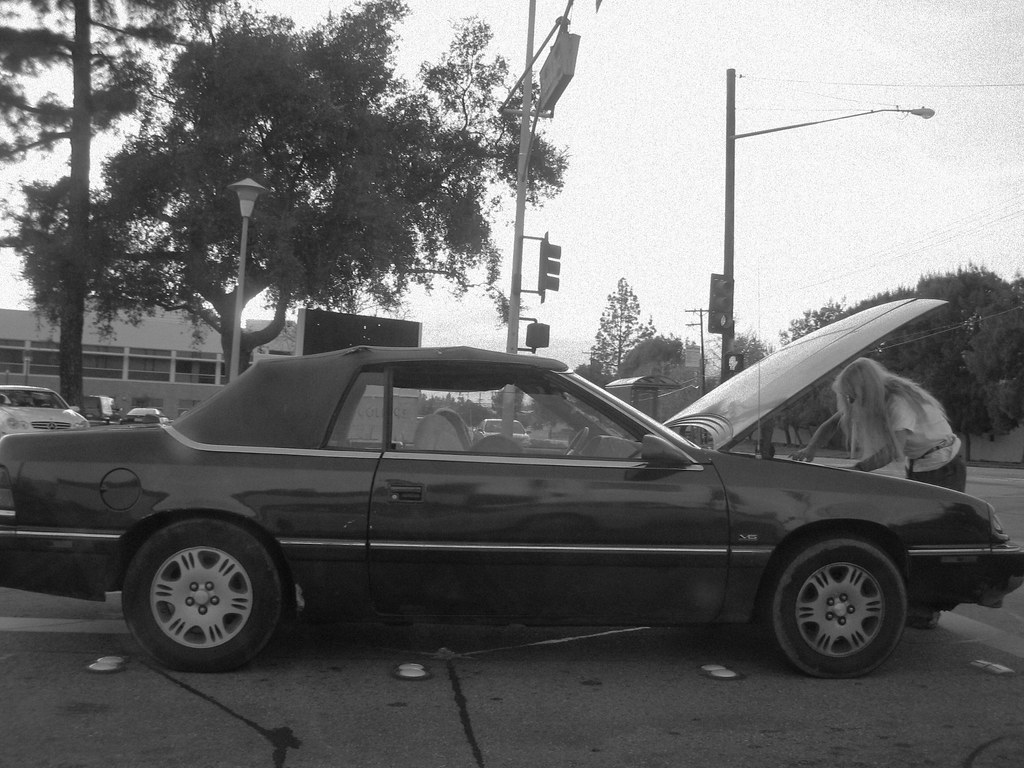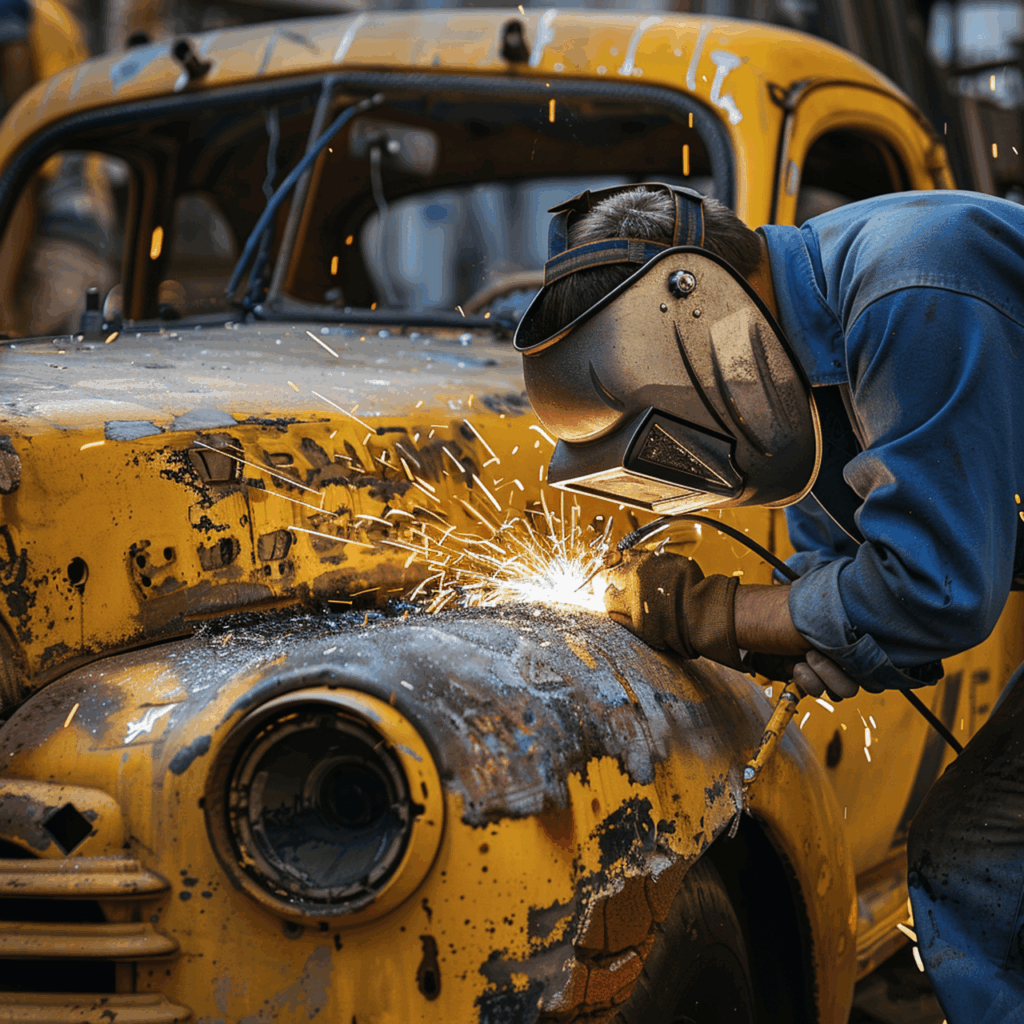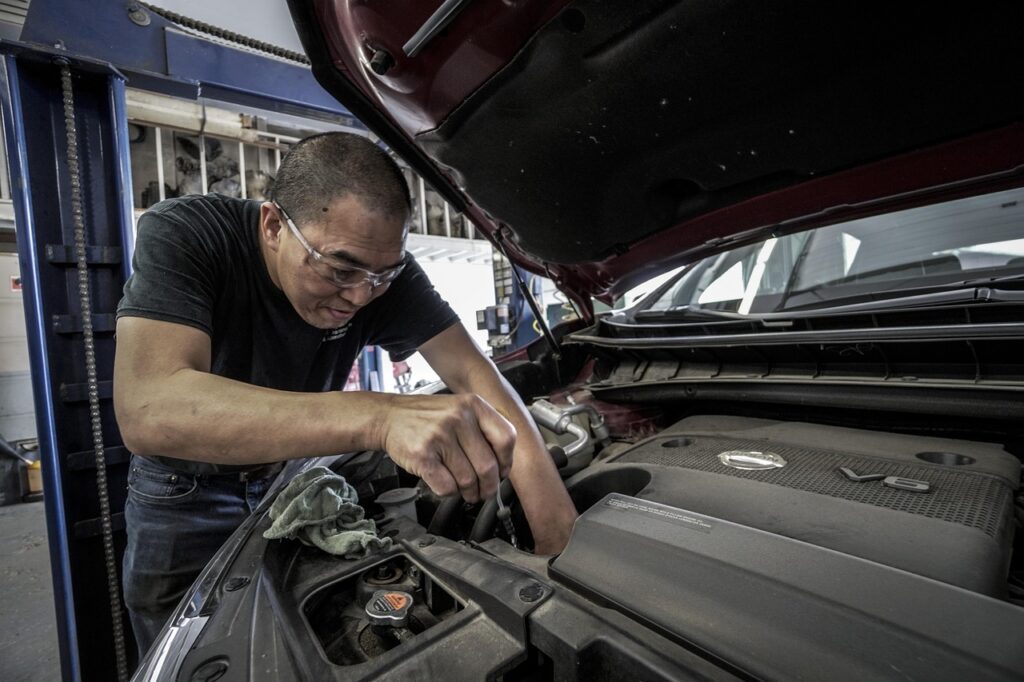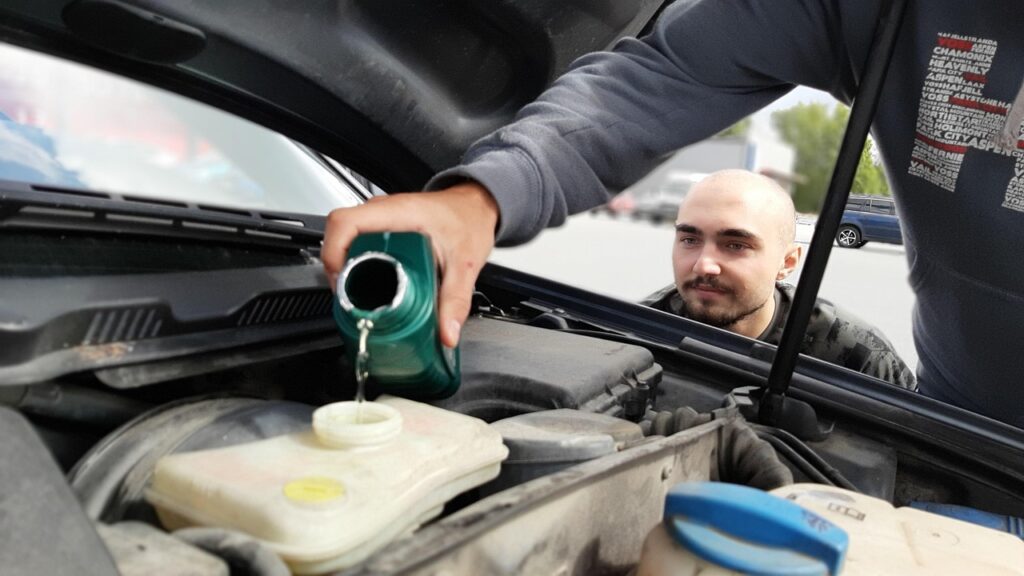
When your car starts making an unfamiliar sound or that dreaded “check engine” light flashes, a sense of panic can quickly set in. For many, the mechanics of a car remain a mystery, making trips to the auto shop a source of considerable stress. The challenge is clear: you know something is wrong, but articulating the problem, understanding the fix, and confirming its necessity often feel out of reach.
However, navigating auto repairs doesn’t have to be an intimidating experience. By arming yourself with the right questions, you can approach your mechanic visits with confidence. This proactive strategy empowers you to make informed decisions, protect your investment, and ensure quality service without facing unnecessary expenses or improper repairs. It transforms a potentially stressful situation into a clear, collaborative process.
This comprehensive guide will equip you with the essential questions to ask your auto mechanic. We’re here to demystify vehicle issues, enhance your communication with repair professionals, and ultimately help you keep your car running safely and efficiently. Let’s delve into these critical inquiries that will empower your next visit to the repair shop.

1. **Can You Explain the Problem in Simple Terms?**This question is fundamental, establishing clarity for the entire repair journey. As the context emphasizes, “Not everyone speaks ‘car’.” A trustworthy auto mechanic should be able to break down complex issues into plain language, free of jargon. This empowers you to understand the problem’s severity and whether it needs immediate attention.
Never hesitate to ask follow-up questions. A good mechanic welcomes your curiosity, ensuring you feel confident in their diagnosis. They should explain the issue at a level you understand, confirming you’re not just passively agreeing but actively comprehending the situation. This initial explanation is key to making informed decisions.
Clear explanations also reveal the mechanic’s transparency and communication skills. If they struggle to simplify or seem unwilling to elaborate, it could be a warning sign. As the context notes, “an educated customer is the best kind of customer,” and a reliable mechanic respects your need for clear information. This question empowers you to take charge of the diagnostic process.
Furthermore, a clear understanding of the problem helps you connect your car’s symptoms with the mechanic’s findings. This holistic view ensures you’re addressing the root cause, not just symptoms, and planning for your vehicle’s long-term health.

2. **Is This Repair Necessary Right Now, or Can It Wait?**Not every car problem demands urgent attention. Distinguishing the necessity of a repair is crucial for budgeting and prioritization. Some issues, like a worn timing belt, can lead to “catastrophic failure if ignored,” requiring immediate action to prevent costlier damage. Others, such as cosmetic damage or minor wear, might safely wait.
Asking this question helps you prioritize repairs based on safety, urgency, and your budget. A reputable mechanic will be honest about the consequences of delaying a fix, providing perspective to guide your decision. This transparency builds trust, ensuring you aren’t pressured into immediate expenses when a repair could safely be postponed.
Knowing the repair timeline also aids planning. If an issue can wait, you gain time to save funds, research parts, or arrange alternative transportation. If critical, knowing its urgency prompts swift action to avoid further damage or safety risks. This question gives you control over your repair schedule and financial outlay.
A trustworthy shop excels at differentiating urgent needs from future considerations. Your mechanic should clearly outline the implications of delaying, offering a reasoned justification for their recommendations. This empowers you to decide confidently, understanding both short-term and long-term impacts.

3. **What Happens If I Don’t Fix It?**This essential follow-up question dives deeper into the repercussions of postponing or skipping a repair. It helps you understand the full risks involved. Will ignoring the issue lead to “a breakdown, more expensive repairs, or safety risks?” A trustworthy mechanic will frankly outline these potential outcomes.
Understanding these consequences enables you to weigh the true costs and benefits of a repair. For example, a minor fluid leak might seem small now, but if unaddressed, it could cause major component failure and a much higher repair bill. This knowledge allows decisions based on the full potential impact, not just the immediate cost.
A mechanic’s willingness to explain “what if” scenarios demonstrates their commitment to your safety and vehicle longevity. They are educating you on the importance of maintenance, not just selling a service. This practical advice is invaluable for tackling problems before they become emergencies.
By asking this, you also assess the mechanic’s problem-solving and educational approach. An informative answer should help you visualize the problem’s progression and risks, reinforcing why certain repairs are necessary. This transparency fosters trust in their recommendations.
Read more about: From Concept Car Catastrophe to Production Car Panic: 14 Vehicles That Redefined ‘Awful’ on the Asphalt
4. **Can You Show Me the Problem, or the Old Parts?**Transparency is key in auto repairs, and visual proof often demystifies the process. As the context advises, “A visual explanation is always helpful.” Ask your mechanic to physically show you the damaged part, either still on the vehicle or after removal. This could be a worn brake pad, a cracked belt, or a corroded battery terminal.
If you’re not onsite or the part is hard to see, a reputable shop might offer a photo of the issue. This builds trust and confirms the need for a new part. If a mechanic is unwilling to provide this transparency, you have “every right to move on to another shop.” This empowers you to feel confident in your repair experience.
When a part is replaced, it’s “completely acceptable (and encouraged) to ask for a glimpse of the defective component.” This confirms the replacement was necessary and the old part was faulty. This practice adds accountability, ensuring you’re not paying for unneeded services or parts.
Seeing the actual problem bridges the knowledge gap. It transforms an abstract diagnosis into a tangible reality, reinforcing why a repair is essential. This visual proof, whether of the problem or the replaced part, is a powerful tool for building confidence and ensuring honest service.
Read more about: Retro Roar vs. Future Flight: Why These Classic Cars Still Outshine Modern Tech on the Open Road

5. **Are There Any Alternatives to This Repair?**Auto repair solutions aren’t always singular; often, multiple options exist. This question prompts your mechanic to present a range of solutions, not just the most expensive one. As the context notes, “Some auto issues can be solved in more than one way.” This includes repair vs. replacement choices, or less costly temporary fixes.
For example, a failing A/C compressor might be temporarily recharged or fully replaced for long-term performance. A tire puncture might be plugged instead of replacing the entire tire, if safe. Asking about alternatives ensures you know all possibilities, letting you choose what best fits your budget, timeline, and vehicle goals. It’s about getting “more information before making a decision.”
A truly customer-focused mechanic understands that “an educated customer is the best kind of customer” and will explain all possible solutions. If they refuse to discuss options or push a single expensive route without justification, they “shouldn’t be repairing your vehicle.” This empowers you to seek comprehensive advice.
Discussing alternatives also highlights the mechanic’s problem-solving skills and commitment to finding the most appropriate solution. It shows they value your input and are willing to collaborate on the best course of action. This transparency builds trust, assuring you the mechanic prioritizes your best interest.
6. **How Much Will It Cost, and Is That the Final Price?**Financial transparency is critical in car repairs. This non-negotiable question helps manage your budget and prevent surprises. “Always request a written estimate before work begins,” as the context stresses. This estimate should detail “parts, labor, diagnostic fees, and taxes.” A clear estimate from the mechanic, explaining how costs were determined, prevents surprises at pickup.
Crucially, clarify if the quoted price is final or subject to change. The context advises asking: “Are original equipment manufacturer (OEM) or aftermarket parts being used?” and “Will you be notified if costs change?” These details are vital. OEM parts, made by your car’s manufacturer, typically ensure compatibility and longevity, while aftermarket parts, from third parties, are often cheaper but vary in quality. You need to be comfortable with the part type and understand its cost and durability implications.
Estimates can change if additional issues are found. If this occurs, you must “receive an updated estimate” and approve it before further work proceeds. Some states even mandate shops call for approval if costs exceed a certain threshold. Regardless of state law, always request the mechanic contact you for approval if anything deviates from the written estimate. This keeps you in control of the budget and scope.
Finally, confirm if the diagnostic exam itself incurs a fee, and how it’s calculated (hourly or flat rate). Understanding all potential fees upfront prevents financial shock. This comprehensive approach to discussing costs ensures full transparency, protecting you from hidden charges and enabling informed financial decisions.
Read more about: Hollywood’s Vanishing Acts: 12 Iconic Movie Props Stolen or Lost from Sets, Displays, and Archives

7. **How Long Will the Repairs Take?**Time is money, especially if your vehicle is essential for daily commutes or family logistics. Knowing the estimated duration of a repair is crucial for planning your schedule and arranging alternative transportation. A reliable mechanic should be able to give you a realistic timeline, differentiating between minor fixes that take a few hours and more extensive repairs that might require several days.
Don’t hesitate to ask if the shop provides any conveniences like a rental car or a courtesy shuttle. These services can significantly reduce the inconvenience of being without your vehicle. Understanding these practical solutions upfront allows you to plan effectively, ensuring you’re not left stranded or facing unexpected transportation costs.
Clear communication about the repair timeline is a hallmark of good customer service and transparency. If a mechanic is vague or consistently misses their estimated completion times, it could indicate disorganization or a lack of respect for your schedule. Stay informed and don’t be afraid to request updates if the repair is taking longer than initially anticipated.
This question empowers you to manage your daily life efficiently while your car is in the shop. It transforms a potentially disruptive situation into a manageable one, proving that an organized repair process benefits everyone involved.
Read more about: Your Ultimate Guide: 14 Essential Rights & Tips for Mastering Homeowners Insurance Claims

8. **Are the Repairs Covered by a Warranty?**A truly reputable auto mechanic stands firmly behind their work, and a warranty is tangible proof of that commitment. Before any work begins, it is absolutely essential to inquire about the shop’s warranty policy on both parts and labor. This critical question ensures you’re protected should an issue recur shortly after the repair, preventing you from having to “foot the bill for a recent automotive service that didn’t actually fix the problem.”
Warranties can vary significantly from one shop to another, and even for different auto parts. While many shops offer a standard guarantee, often around “12 months or 12,000 miles,” it’s crucial not to assume this is always the case. Some shops may offer more comprehensive coverage, while others might have limitations. Always request the warranty details in writing, clarifying what specific components and services are covered, and for how long. This written documentation is your safeguard.
Understanding the warranty also helps bust a common myth: that you must take a newer car still under manufacturer warranty to the dealer for service. The Federal Trade Commission’s information on auto warranties clarifies that it’s “actually illegal for warranty coverage to be denied because you took your car to a place other than the dealer for routine maintenance or repairs.” This empowers you to choose a repair shop based on trust and quality, not just brand affiliation, knowing your warranty rights are protected.
Knowing your warranty protections provides invaluable peace of mind. It demonstrates the shop’s confidence in their craftsmanship and ensures that your investment in the repair is secure, even if unforeseen issues arise after you leave the garage.
Read more about: Buying a Used Car? These Certified Pre-Owned Programs Offer Unbeatable Value for Smart Shoppers

9. **Will You Do a Full Vehicle Inspection?**Often, the specific problem that brings you to the shop is just one piece of a larger automotive puzzle. A comprehensive vehicle inspection goes “beyond the initial diagnosis” and can uncover underlying or developing issues before they escalate into major, costly repairs. A thorough inspection, as the context highlights, can reveal “hidden issues, like worn brake pads or a leaking hose,” allowing you to address them proactively.
This question directly reveals a mechanic’s commitment to preventative maintenance, not just quick fixes. A shop focused on your vehicle’s long-term health will conduct a full check-up, identifying potential future problems and providing recommendations. This proactive approach helps you plan for upcoming maintenance, preventing unexpected breakdowns and ultimately saving you money by catching minor issues before they become emergencies.
Inquire if this inspection is included with your service or if it’s an additional charge. Even if there’s a fee, the insights gained from a detailed inspection are often invaluable for maintaining your car’s safety and reliability. It helps you prioritize repairs, understand your car’s overall condition, and ultimately make more informed decisions about its care.
By asking for a full inspection, you take control of your vehicle’s health, shifting from reactive repairs to a strategic maintenance approach. It’s an indicator that your mechanic is focused on preventative care, ensuring your car stays road-ready and reliable for longer.
Read more about: The 14 Essential Questions to Ask Before Buying a Car: Your Comprehensive Guide to Safety and Value
10. **Do You Have Certifications or Special Training?**Just as you wouldn’t trust a doctor without a license, it’s vital to ensure your mechanic possesses verifiable qualifications. Asking about certifications, particularly “Automotive Service Excellence (ASE) certified” technicians, is paramount. ASE certification signifies that a mechanic has undergone rigorous training and testing, proving their competence and commitment to industry standards. These certifications demonstrate professionalism, updated knowledge, and a dedication to performing repairs correctly.
Furthermore, inquire if the shop’s technicians have specific experience or “factory training” with your particular “make and model” of car. Some repair shops specialize, and taking your vehicle to a mechanic familiar with its unique systems can ensure more accurate diagnostics and efficient repairs. This specialization is especially important for modern vehicles, which are increasingly “like computers on wheels.”
A mechanic’s ongoing commitment to education, whether through workshops, online courses, or industry events, is another excellent indicator of their expertise. The automotive industry is constantly evolving, and technicians who stay updated on the latest technology are better equipped to handle complex repairs and provide superior service. This question empowers you to choose a professional who takes their craft seriously, ensuring your vehicle is in capable hands.
Certifications are more than just pieces of paper; they are a sign that the mechanic takes their job seriously and stays updated with industry standards. This dedication translates into better service for your vehicle, offering you confidence in their skills and the quality of their work.

11. **Will You Provide Me With a Detailed Invoice Once the Repairs Are Completed?**Receiving a comprehensive, itemized invoice upon completion of service is non-negotiable. This document serves as your official record of the work performed, detailing “exactly what parts were replaced and have that for your records,” along with labor charges and any other fees. It’s a vital tool for ensuring full transparency and accountability for the services rendered.
A detailed invoice is crucial for several reasons. Firstly, it provides undeniable proof of service should a newly installed part fail within its warranty period, making any future claims much simpler. Secondly, it becomes an invaluable asset if you decide to sell your car, as you can “show prospective buyers what work has been done to it,” boosting confidence and potentially resale value.
This document should clearly break down the costs of “parts, labor, and taxes,” aligning with the initial written estimate. If there were any approved changes or additional discoveries during the repair process, these should also be clearly reflected and explained on the final invoice. Always review it carefully to ensure accuracy and consistency with what you authorized.
An itemized invoice fosters trust and clarity, transforming the repair transaction into a transparent exchange. It empowers you with verifiable records, ensuring you have all the necessary information for future reference or potential issues.
12. **Do You Offer Follow-Up Support or Post-Service Checks?**A truly excellent auto repair shop doesn’t just fix your car and send you on your way; they demonstrate a commitment to your long-term satisfaction and your vehicle’s ongoing health. Asking about follow-up support or post-service checks can reveal a mechanic’s dedication to quality and customer care. This could include free inspections after a certain period, reminders for your next scheduled service, or even a simple call to ensure everything is running smoothly.
This proactive approach highlights a shop’s professionalism and their confidence in the quality of their work. It provides an extra layer of assurance that they stand by their repairs and are invested in your vehicle’s performance beyond the immediate visit. It also offers you an opportunity to address any lingering concerns or questions that might arise after you’ve driven your car for a bit.
Such services, while not always explicitly advertised, are a strong indicator of a customer-focused business model. It differentiates shops that prioritize building lasting relationships from those merely seeking transactional repairs. Don’t hesitate to inquire about what happens *after* you drive off the lot – it’s a testament to their overall commitment to your vehicle’s well-being and your peace of mind.
Follow-up support ensures continuous accountability and fosters a lasting relationship with your mechanic. It’s the final layer of protection, guaranteeing that you’re not alone if any issues resurface and reinforcing confidence in your chosen repair professional.
Arming yourself with these essential questions transforms you from a passive recipient of service into an empowered, informed car owner. It’s about more than just getting your car fixed; it’s about building trust, ensuring transparency, and protecting your investment. By prioritizing communication and understanding, you can navigate auto repairs with confidence, keeping your vehicle safe, reliable, and ready for whatever the road ahead brings. So, next time that “check engine” light flickers, remember: you’ve got the knowledge to drive a better repair experience.







